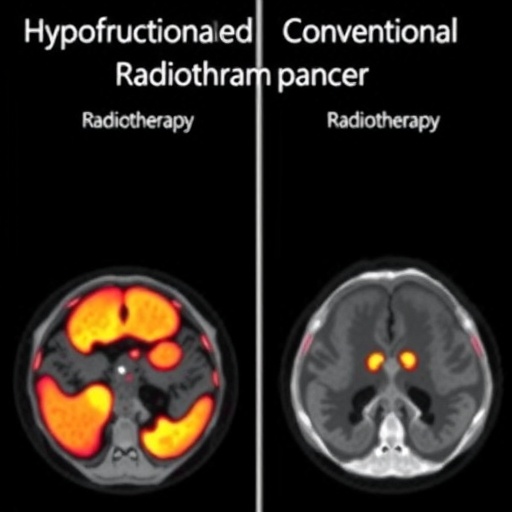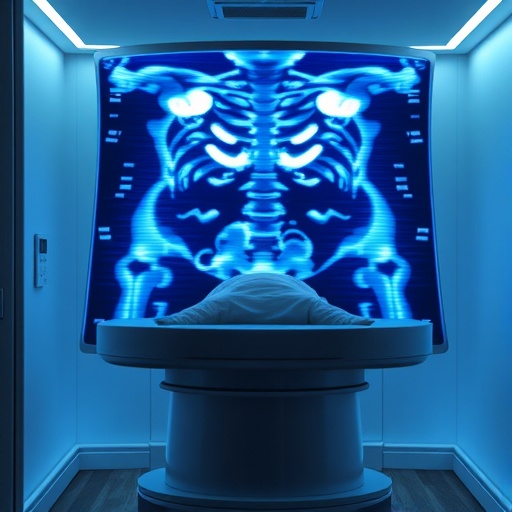PROTECT YOUR DNA WITH QUANTUM TECHNOLOGY
Orgo-Life the new way to the future Advertising by Adpathway
Palo Alto, CA and Bethesda, MD (August 26, 2025) – In a groundbreaking advancement for inflammatory bowel disease (IBD) management, the American Gastroenterological Association (AGA) has embarked on a transformative collaboration with Latica, an innovator in real-world clinical data analytics and artificial intelligence (AI)-powered research solutions. This partnership aims to launch the IBD Living Guidelines Real-World Evidence Study, a pioneering initiative designed to harness rich, community-based clinical datasets to dynamically assess and optimize the implementation of AGA’s living guidelines for ulcerative colitis.
Living clinical guidelines represent an evolution beyond traditional static protocols by continuously integrating emerging therapeutic insights and clinical practice changes in real time. Unlike conventional guidelines that remain fixed until periodic updates, living guidelines provide a flexible, iterative framework enabling gastroenterologists to adapt their care approaches rapidly as new evidence becomes available. This adaptable methodology is particularly critical in IBD, where therapeutic landscapes are shifting rapidly due to novel biologics, small molecules, and personalized treatment strategies.
Latica’s proprietary data platform lies at the core of this study’s innovative approach. It enables the secure aggregation and de-identification of vast quantities of electronic health record (EHR) data from community gastroenterology practices, starting with Gastro Health and Allied Digestive Health, which collectively represent some of the most extensive GI practice networks within the United States. Latica’s platform excels in transforming heterogeneous and often unstructured medical documentation — including physician notes, lab results, and imaging reports — into structured, analyzable data, leveraging state-of-the-art natural language processing (NLP) and machine learning algorithms.
By tapping into this real-world evidence, the study aims to elucidate the true clinical and operational impacts of AGA’s ulcerative colitis living guideline as it is adopted in everyday outpatient settings. Key endpoints include measuring actual treatment adoption rates, the evolution of patient care pathways, and resulting clinical outcomes such as remission rates, hospitalization frequencies, and therapy adherence. This granular insight into real-world practice variations and outcomes is indispensable for closing the translational gap between guideline recommendations and tangible improvements in patient health.
AGA President Dr. Lawrence Kim underscores the necessity of this initiative, emphasizing that rapidly evolving treatment modalities necessitate robust mechanisms to monitor how guidelines perform in actual clinical environments. The real-world data generated will not only reinforce evidence-based recommendations but also inform payor strategies and healthcare policy, ultimately fostering alignment across the healthcare ecosystem to optimize resource utilization and patient care quality.
Latica CEO and co-founder Omer Dror further highlights the transformative potential borne from combining AI with expansive clinical datasets. With the power to mine granular clinical narratives and detect nuanced treatment patterns at scale, this collaboration seeks to generate evidence with unprecedented depth and precision. The study’s analytical capabilities extend beyond descriptive statistics, employing predictive modeling to anticipate patient trajectories and identify care bottlenecks, enabling proactive clinical interventions.
From a community practice standpoint, leaders like Dr. Eugenio Hernandez of Gastro Health express optimism about leveraging these innovations to measure guideline adherence and identify gaps in care. The capacity to continuously assess guideline efficacy in varied real-world patient populations allows clinicians to recalibrate and personalize therapeutic regimens, thus advancing the frontier of precision gastroenterology.
Likewise, Dr. Nadeem Baig, Chief Medical Officer of Allied Digestive Health, notes that integrating Latica’s AI-driven insights aligns seamlessly with their organization’s mission of delivering high-quality, compassionate GI care. By rigorously evaluating guideline implementation in diverse community settings, this collaborative study promises to not only elevate standardization of care but also enhance patient engagement and satisfaction through evidence-backed, data-informed clinical decision-making.
The IBD Living Guidelines Real-World Evidence Study embodies a critical nexus in the ongoing endeavor to bridge clinical research and everyday practice. Traditionally, clinical trials and guidelines have operated in somewhat insular environments, often failing to reflect the complexities and heterogeneity of community practice populations. The infusion of real-world evidence, powered by advanced AI methodologies, permits a dynamic feedback loop wherein guidelines can be continuously validated, refined, and contextualized against authentic patient experiences and outcomes.
Moreover, this initiative exemplifies the broader paradigm shift within medicine toward data-driven, precision approaches that leverage vast clinical datasets alongside machine intelligence. By moving beyond retrospective chart reviews and claims data, the utilization of comprehensive EHR-derived real-world data enables multidimensional analyses encompassing clinical nuance, therapeutic sequencing, and longitudinal patient follow-up, all at scale.
Ultimately, the collaborative framework established by AGA, Latica, Gastro Health, and Allied Digestive Health sets a new standard for how specialty societies and healthcare providers can harness digital innovation to transform chronic disease management. The insights generated through this study will not only inform future iterations of living guidelines for ulcerative colitis but will also serve as a blueprint for applying similar cutting-edge methodologies across other gastrointestinal disorders and medical specialties.
As the field of gastroenterology continues to evolve in the era of personalized medicine, initiatives such as this underscore the vital importance of integrating AI-powered real-world evidence to enhance clinical decision-making and improve patient-centered outcomes. By fostering ongoing, iterative dialogue between guideline development and real-world clinical practice, the IBD Living Guidelines Real-World Evidence Study represents a pivotal step toward truly adaptive, responsive, and effective gastrointestinal healthcare.
Subject of Research:
Article Title:
News Publication Date: August 26, 2025
Web References: https://www.gastro.org/, https://latica.ai/, http://gastrohealth.com/, http://allieddigestivehealth.com/
References:
Image Credits:
Keywords: Gastroenterology, Inflammatory Bowel Disease, Ulcerative Colitis, Living Guidelines, Real-World Evidence, Artificial Intelligence, Machine Learning, Natural Language Processing, Electronic Health Records, Clinical Decision Support, Community Health Data, Precision Medicine
Tags: American Gastroenterological Associationartificial intelligence in healthcareclinical data analyticscommunity-based clinical datasetsdynamic clinical guidelineselectronic health record datainflammatory bowel disease managementLatica collaborationliving guidelines for IBDpersonalized treatment strategiesreal-world evidence studyulcerative colitis treatment


 1 month ago
31
1 month ago
31





















 English (US) ·
English (US) ·  French (CA) ·
French (CA) ·